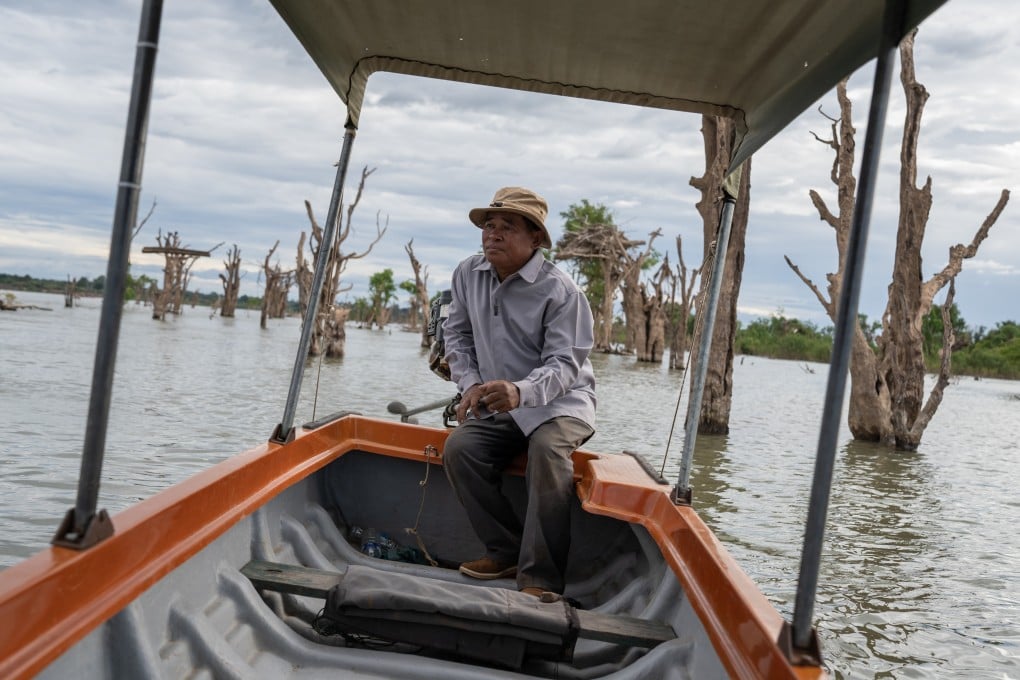How dams in China are destroying livelihoods downstream in Cambodia
- The demise of a flooded forest in the Mekong River, blamed on high-volume dams in China, and to a lesser extent Laos, is robbing Cambodians of vital income

It’s laundry day and 34-year-old Tha Sara is going through a pile of colourful garments, arranged neatly on her slender canoe. Docked near the banks of the mighty Mekong River in northeastern Cambodia, just below the border with Laos, the tiny boat rocks gently as Tha Sara pours water from the washing basin back into the river.
From the banks, where lush canopies shoot up into the sky, two of Tha Sara’s three children – a girl and a boy – watch on. The 12-year-old chats to her while the timid eight-year-old listens.
When she was thousands of kilometres away it was his voice on the phone that made her fall to pieces. “I always cried because I ate delicious food and thought of my kids,” Tha Sara says of her two-year stint as a domestic worker in Saudi Arabia, where she stayed until May 2022. “Living here is very poor.”
Tha Sara had been meaning to work overseas for years but it was her husband’s death in 2019 that tipped the scales in favour of leaving home.

Like most men in the village, he was a fisherman – a precarious occupation with widespread fish scarcity. To make ends meet he took out loans and after his untimely death, the family was plunged further into debt.
It all tallied up to US$5,000, a flabbergasting amount in a country where those in manufacturing jobs earn up to US$200 per month.